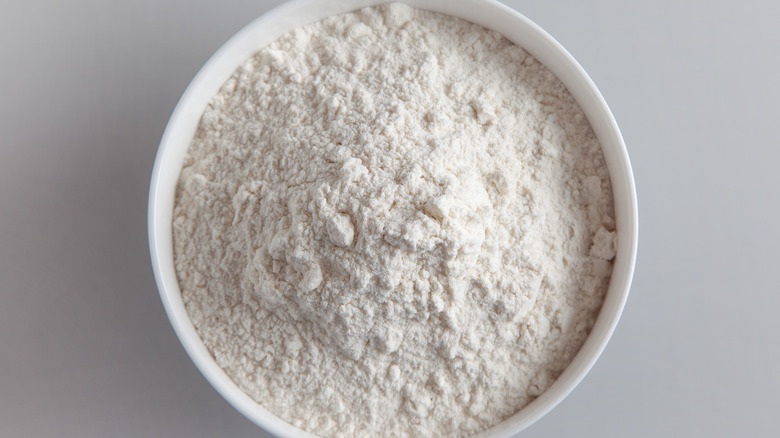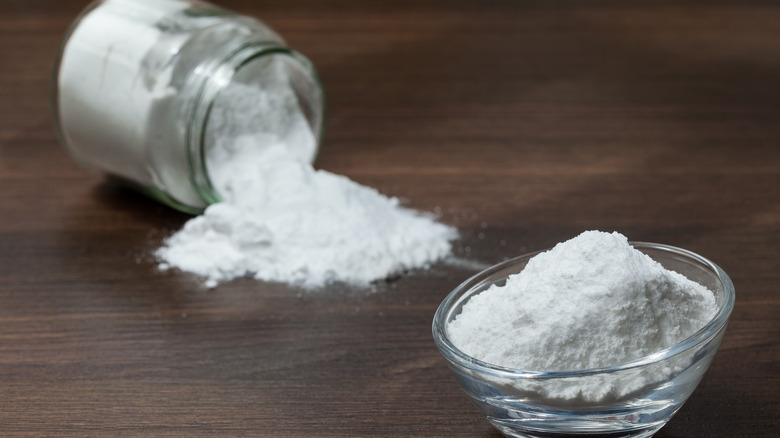Can You Use Expired Baking Powder?
Baking essentials like baking powder can be found in any chef's pantry — from novices to professionals alike. A common leavening agent in baking, it makes otherwise thick batters soft and flat doughs rise (via Healthline). But with many baking recipes calling for only tiny teaspoons of the stuff, it's common for people to hold onto half-full boxes of it for years. It's only when it's finally time to break out the powder again that you discover its expiration date has long passed. The ink is half-faded, you can barely make out the number 14 behind the slash mark.
You may accumulate expired baking supplies because you don't want to waste them, and baking powder can be a common victim of this sad tale. So maybe you only make your special Irish soda bread recipe, it's not your fault most of the ingredients are now older than a middle-schooler. When it comes time to bake you may find that you technically have all the ingredients ready at home, their freshness is just questionable. Should you risk using the aged baking powder or just make a trip to the store?
Baking powder or baking soda?
If you sometimes use baking soda in your recipes, you might be wondering if baking powder is the same thing. Well, it's actually not, according to Healthline. Baking soda is 100% sodium bicarbonate, a chemical compound that creates carbon dioxide gas when mixed with an acid. This reaction brings height and fluff to baked goods. On the other hand, baking powder is a mixture of both sodium bicarbonate and powdered acid.
Although the products are very similar, both creating the carbon dioxide gas that makes doughs rise, they're used in different recipes. Baking powder is for recipes that contain little or no acidic ingredients (via Arm & Hammer). Since baking powder is double-acting, it has two types of acids in it. These acids will react at different times, once when you mix your batter and again when it is heated. This process adds volume to acid-less baked goods, usually cookies or cakes. On the other hand, you should use baking soda in recipes that already have acidic elements in their ingredient lists. In this case, only one chemical compound is needed to help the batter rise. If you've seen some recipes that include both baking soda and baking powder, this is because baking soda alone cannot create the desired lift.
So clearly baking powder is an extremely useful tool for the kitchen. If you do happen to let it sit in your pantry, here's what you need to know about its expiration date.
What that expiration date really means
If you do happen to let your baking powder lie, here's what you need to know about its expiration date. For the most part, the date listed on the box is mostly a suggested use-by date. Like most stuff used in the kitchen, the year listed on your baking powder is how long the product will hold before its quality starts to diminish. In other words, you can still use baking soda after its expiration date, it just might not be as effective. MasterClass says that for most unopened boxes of baking powder, this is around 18 months. Once you open the box, it will usually stay fresh for three to six months if kept in a cool, dry place.
According to MasterClass, baking powder is a grocery with a surprisingly long shelf life and will always be safe to use. If you want to use that long-expired powder, feel free. But you might want to make sure it still works before incorporating it into your batter. You can test your baking powder's efficiency by stirring it into hot water. If bubbles or fizz appear, it is still effective and ready to use. If not, you may want to pick up a new box from the grocery store.


